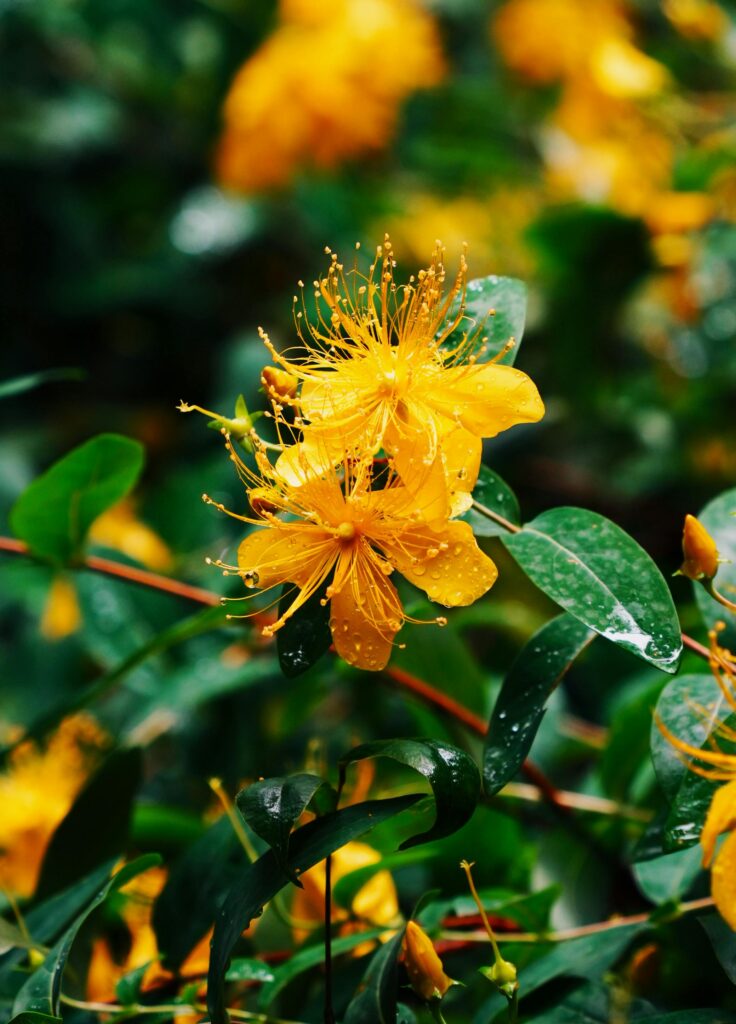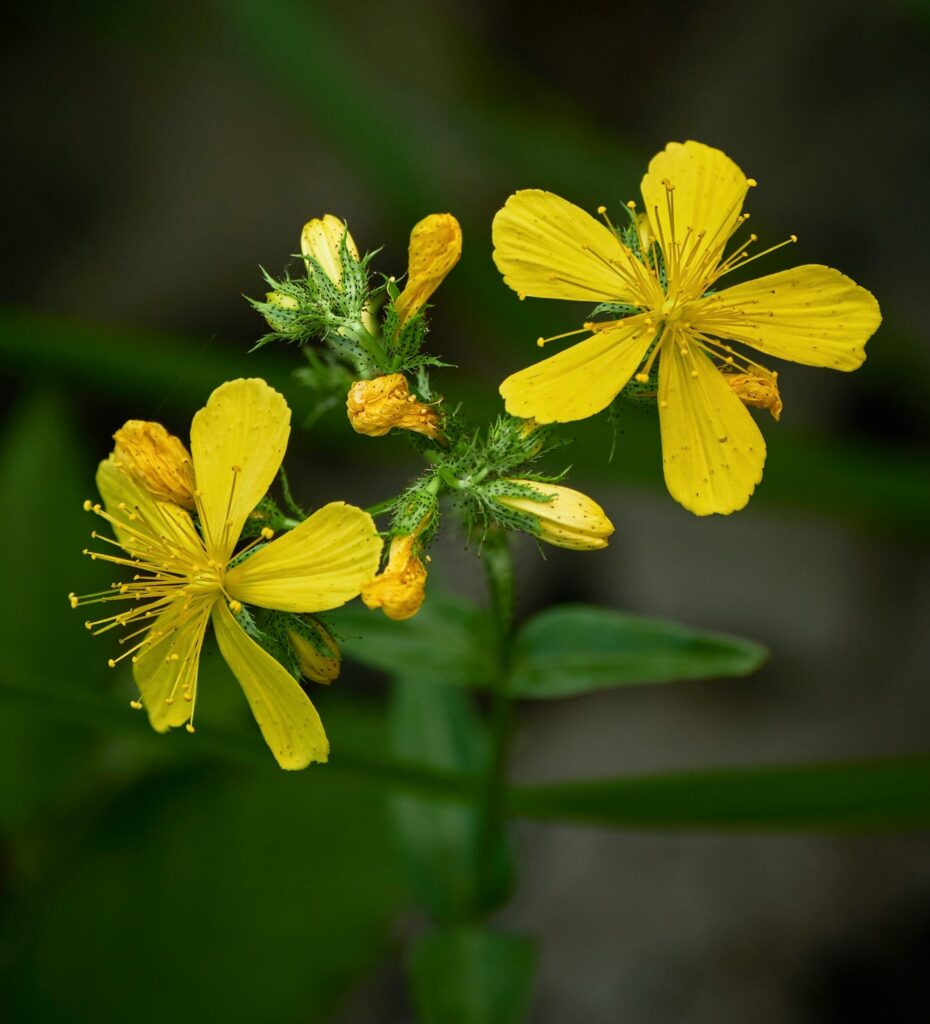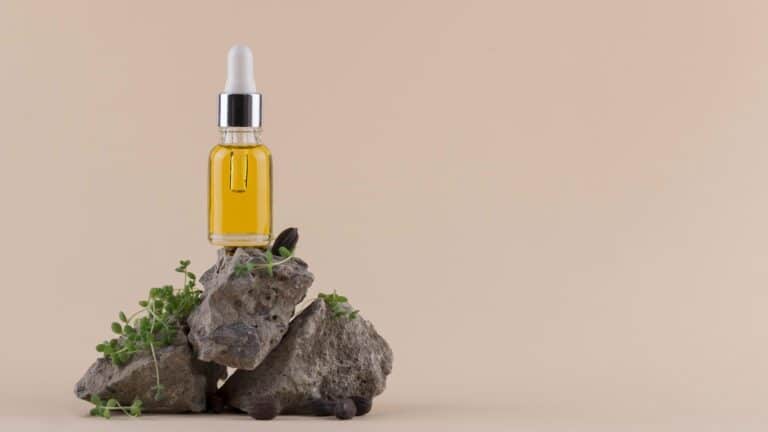
**Unlocking the Power of St. John’s Wort: Nature’s Healing & Beauty Ally**
Introduction
In the realm of herbal remedies and natural beauty, few plants stand out as much as *Hypericum perforatum*, commonly known as St. John’s Wort. With its vibrant yellow flowers and rich history, this illustrious herb has been treasured for its healing properties for centuries. Today, St. John’s Wort continues to make significant impacts in the fields of medicine, skincare, haircare, and holistic body care. Its multitasking abilities—healing wounds, uplifting moods, and fortifying beauty—are why it remains a preferred natural solution for many. Let’s explore the origins of this remarkable herb, its impressive benefits for human health, and its expanding influence in modern cosmetology.
Origin of St. John’s Wort
St. John’s Wort’s roots stretch deep into European history, where it has been used for thousands of years. Native to Europe, parts of Asia, and North Africa, the plant thrives in fields, meadows, and roadsides. Its distinctive bright yellow flowers bloom predominantly around June 24th—the feast day of St. John the Baptist—hence the name “St. John’s Wort.” Historically, people believed that placing this herb under a pillow could induce vivid dreams or ward off evil spirits, reflecting its revered status in ancient times.
Throughout the centuries, various cultures recognized its potent medicinal qualities. The Greeks used it for wound healing and mental wellbeing, while medieval Europeans employed it to treat inflammation and infections. In traditional herbal medicine, the herb was considered a “cure-all,” valued for its versatility and efficacy. Today, scientists have studied its active compounds—hypericin, hyperforin, and flavonoids—confirming many of these traditional uses with scientific backing.
Benefits of St. John’s Wort for Human Use
1. Mental Health & Mood Regulation
One of the most well-known uses of St. John’s Wort today is its role in mental health. Extracts from the plant, especially hyperforin, have been shown to influence serotonin, dopamine, and norepinephrine levels in the brain—neurotransmitters associated with mood regulation. Numerous clinical studies reveal that it can help alleviate mild to moderate depression and reduce symptoms of anxiety, making it a natural alternative or complement to conventional antidepressants. Its calming effects can promote emotional well-being, especially in stressful times.
2. Wound Healing & Inflammation
The herb’s anti-inflammatory and antimicrobial properties have made it a favorite in treating minor cuts, burns, bruises, and skin irritations. The active compounds stimulate tissue regeneration, speed up healing processes, and help prevent infections. Historically, soldiers in medieval Europe used St. John’s Wort as a topical remedy for wounds, an application supported by modern research.
3. Antioxidant & Immune Support
St. John’s Wort boasts a high concentration of antioxidants—flavonoids and phenolic acids—that combat oxidative stress, which contributes to aging and chronic disease. These antioxidants support overall immune health, protect cells from damage, and promote longevity. Regular use of the herb can contribute to vitality and resilience against environmental stressors.
4. Relief from Menopausal Symptoms and PMS
Emerging studies indicate that St. John’s Wort can also ease symptoms of menopause, such as hot flashes and mood swings. Its calming and hormone-regulating properties make it a natural option for women seeking relief from hormonal fluctuations.

Expanding in Cosmetology: Skin, Hair, Body & Bath
1. Skincare
In recent years, St. John’s Wort has gained popularity in the skincare industry. Its anti-inflammatory, antibacterial, and antioxidant properties make it particularly beneficial for sensitive and problematic skin. Products infused with this herb help soothe redness, irritation, and inflammatory skin conditions such as eczema and psoriasis. Its wound-healing properties accelerate repair of minor cuts and abrasions, reducing scarring and promoting healthy skin regeneration.
Additionally, its antioxidant capacity helps neutralize free radicals—the culprits behind premature aging. As a result, it’s often incorporated into anti-aging creams and serums to enhance skin elasticity, brighten complexion, and combat environmental damage. Its calming effects also make it suitable for products designed for sensitive or reactive skin types.
2. Hair Care
For haircare enthusiasts, St. John’s Wort offers a natural way to promote healthy scalp and shiny hair. Its anti-inflammatory properties help soothe scalp irritation and reduce dandruff. Hypericin and flavonoids stimulate scalp circulation, encouraging hair follicle health and growth. Many herbal shampoos and conditioners now include extracts of this herb to support thicker, stronger hair while combating dryness and brittleness.
Moreover, its antioxidant components protect hair strands from the damaging effects of UV rays, pollution, and styling treatments, maintaining hair vitality and color longevity.

